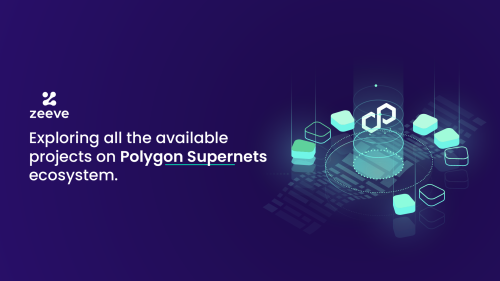
Exploring all the available projects on the Polygon Supernets ecosystem
As a powerful and fastest-growing Layer-2 scaling solution, Polygon Network keeps introducing innovative and highly feasible protocol offerings and version upgrades. Polygon Supernets is one such Polygon’s prevalent service, which is an appchain or application-specific blockchain solution representing the next phase of Proof-of-Stake Polygon and Ethereum scaling. Supernets are just like other Polygon-powered networks such as Polygon Miden, Polygon ID, and Polygon edge, but they stand apart with the unique capabilities of allowing web3 enterprises and projects to launch a blockchain network that is tailored based on the use case-specific requirements of a single application.
Leveraging the modular framework, a complete range of stacks and tools offered by Supernets, developers can easily create a high-performing blockchain that is highly secure, scalable, and interoperable with other appchains. Within less time, Polygon Supernets have become an unstoppable network that has been powering a range of applications across major industries, spanning DeFi, NFTs, DAO, Gaming, and more.

In this article, we will discuss all the available Polygon Supernets projects that have embraced the Supernet’s app-chain ecosystem for a variety of use cases, becoming frontiers of web3 technology.
Projects building on Polygon Supernets right now
As we know, Polygon initially launched Polygon PoS Supernets, enabling the creation of scalable blockchain networks that meet the specific needs of their applications while inheriting the security from Polygon PoS. Just recently, Polygon Labs introduced zkEVM supernets, which harness the power of ZK Proofs, lowering down the transaction/gas costs while boosting the throughput and benefiting from the robust security of Layer-1.
Let’s learn about Polygon Supernets projects based on these two categories— Proof-of-stake supernets and zkEVM Supernets:
zkEVM Supernets
Palm Network:
The ConsenSys-backed Palm Network, in collaboration with Polygon, is deploying their NFT creator platform on the Polygon zkEVM Supernets. This strategic move aims to scale the network endlessly and reduce costs for creators and brands wanting to delve into the Web3 space. The network is also migrating from its current proof-of-authority (PoA) consensus mechanism to a proof-of-stake (PoS) mechanism as the early planning for Supernet’s deployment.
Palm Network offers tools for NFT creators and artists, allowing them to tokenize, share, and sell their digital assets with the security and scalability of zkEVM technology. With Polygon’s highly scalable Supernets, Palm aims to scale its tools suite, becoming a preferred hub for creators in the Web3 landscape.
This collaboration aligns with Polygon’s ongoing network upgrades, including zkEVM technology and upgrades in other services. This will allow Palm Network to build Supernets using the required use cases, including NFT creation and distribution.
Nexon:
Nexon, a globally renowned and South Korea-based game publisher giant, announced the launch of a dedicated, custom appchain using Polygon zkEVM Supernets in March, 2023. The platform’s objective of building a private Supernet on Polygon is to maintain the scalability of its popular and most-played Non-fungible token (NFT) game– MapleStory. This gaming project built with Polygon Supernets project has a fast-growing ecosystem of over 180 million registered and millions of daily active players.
The project further aims to scale another million users, for which it requires a dedicated network to support unparalleled growth, security and meanwhile eliminate the increasing congestion. Also, an independent blockchain will allow Nexon to customize to meet the complex requirements of the massive player community. The web2 version of Maplestory only supports buying and selling digital assets, but with Polygon Supernets, the players will be able to own, mint, and earn NFT assets, unlocking various benefits and encouraging utilities for them.
Gnosis Pay:
Gnosis Pay, the widely used payment network, is now entering the realm of decentralized finance, expanding its reach in the web3 space. For this, the platform announced the release of a VISA-certified self-custodial debit card for its customers called Gnosis card. These blockchain-based offerings initiate the creation of the first decentralized payment network that will seamlessly integrate with the traditional payment processor of Gnosis Pay. The network is powered by Polygon zkEVM Supernets, which ensure the security of app’s funds against potential security breaches and vulnerabilities while improving scalability and transaction speed. Further, to make their project a success, Gnosis Pay has been onboarding millions of their users from web2 to web3, including seasoned crypto enthusiasts and even the new users.
Capx Chain:
Capx App— a leading DeFi app has announced the launch of their zkEVM AppChain with zkEVM Polygon Supernets to migrate the CapX app, which currently witnesses a bulk of transactions on the app, which contributes approximately 73% of the total Biconomy SDK transaction. Looking at the data, Capx has recorded 100,000+ On-chain transactions through 60,000+ total active wallets, along with the distribution of 200,000+ IOU tokens. This high traffic creates congestion on the app, which Polygon Supernets will solve. Thus, Capx Chain will allow the dApp to offer lightning-fast transactions, 100% gasless transactions, Account Abstraction (AA) enabled smart contracts, social recovery-enabled wallets, Capx ID– the DID solution, and the Non-transferrable Community NFTs. Thereby, Supernets powers Capx Chain with all the powerful features required to increase scalability, add innovative cryptographic features, and provide an excellent user experience.
Also Read: A Complete Guide On Polygon Supernets
Nubank:
Nubank– a fast-paced Latin America-based fintech company with over 70 million customers has tapped into the Polygon zkEVM Supernet ecosystem to launch its own application-specific blockchain regulating the network’s digital token; Nucoin. The launch will transition the Nubank ecosystem from web2 to web3, allowing Nubank to embrace democratization with blockchain. This single-use ecosystem paves the way for the company’s biggest reward program for over 70 million clients all across Latin America without creating scalability issues. Their custom loyalty will offer real-world benefits such as rewards, discounts, and other benefits.
Lemon App:
The Argentina-based cryptocurrency wallet Lemon is building on Polygon zkEVM Supernets to improve the scalability of their dApp ecosystem and, meanwhile, simplifying the user experience with unparalleled security and interoperability with other NFT-powered web3 projects using cutting-edge solutions provided by the Supernets.
Lemon claims to represent 6.5% out of the total NFT addresses active on the market, which records more than 540.000 users per wallet, are set to use Lemon’s next-level crypto and NFT products. Now, to maintain scalability despite such a huge user base, Lemon has chosen to build a custom, single-use blockchain on the Polygon Supernets infrastructure to scale the next millions of mainstream users, making their on-chain crypto solutions available to users in Latin America.
Lemon has further plans to leverage Polygon Supernets ecosystem in line with Polygon’s web3 technologies to create innovative staking-based solutions and a series of decentralized apps for DeFi, NFT, and gaming markets.
Plai Labs:
PLAI Labs, the next-generation social platform, has announced migration of its latest project– Champions Ascension, to the Polygon zkEVM Supernets ecosystem, accomplishing the main objectives such as maximizing the scalability, redefining the user experience, expanding the project’s existing player base, and optimizing the NFT assets.
PLAI Labs is the home to various products related to Social Media, Game Mechanics, and Artificial intelligence technology, which are being used by hundreds of folks across worldwide. As one of the advanced Polygon Supernets projects, Champions Ascension leverages a lot of benefits from the Supernets. For example, the project enjoys Polygon’s enhanced scalability that results in high transaction throughput and low latency, enabling this game to continue growing millions of player base.
Additionally, the sovereignty enabled by Polygon Supernets allows for a considerable reduction in the transaction fee, encouraging players to participate in the game’s various aspects, including NFT minting, trading, and in-game purchases of rare digital items. Also, cost negligence is the best way for Champions Ascension to increase rewards designed for the players. Interoperability is another aspect of Supernets that supports Champions Ascension’s interaction with other blockchain networks and dApps running on the Polygon ecosystem which enhances the gaming and trading experience of the players.
Ripio:
Latin America’s leading digital asset platform, Ripio has joined Polygon Supernets ecosystem to improve scalability of the project, simplify the user experience, and ultimately accelerate the adoption of their web3 solutions. Ripio is associated with the Buenos Aires-based company, which has deployed its main products– Ripio wallet, Ripio Trade, and Ripio portal to the supernets ecosystem.
Founded in Argentina and operated in multiple tier-1 and tier-2 countries such as the United States, Colombia, Brazil, Chile, and Mexico– Ripio currently records more than 8 million users (as per CoinDesk’s data). Speaking about the monthly transactions, Ripio’s users contribute $200+ million every month.
Having a huge user base is a sign of Ripio’s mass adoption, but it causes congestion on the ecosystem at the same time. By plugging into Polygon Supernets ecosystem, Ripio has managed all its dApps on LaChain, an independent, Layer-1 blockchain created with Supernets and a range of Polygon Labs’ scaling tools. Besides scalability, Ripio benefits from Supernet’s capabilities of enabling Ripio’s dApps interoperability with other Supernets-based protocols and, most importantly, faster and cheaper transactions.
Gaia-x, Acentrik, and more:
deltaDAO, the popular Ocean protocol integration, engineering, and consulting company, has launched its decentralized data network– Gaia-x on the Polygon zkEVM supernets ecosystem. With that, the network will leverage a highly scalable, open-source, and fully compliant federated digital ecosystem plus a decentralized identity framework designed for institutions and businesses building their solutions on Gaix-x.
Similarly, Accentrik— another decentralized data marketplace for facilitating data sharing and monetization, will bring its state-of-the-art data platform on the scalable and secure infrastructure of Polygon ZkEVM Supernets.
Immutable
The web3 gaming platform Immutable has partnered with Polygon Supernets to launch a dedicated gaming blockchain powered by the zkEVM technology. Immutable will utilize this chain to deploy a new layer-2 blockchain– Immutable zkEVM. Game development on this new chain will be easier, faster, risk-free, and more economical for the web3 developer community and also for the large game studios. By creating a separate chain, Immutable reduces its reliance on a single network infrastructure, which reduces transaction fees and improves overall scalability, thereby allowing for the development of feasible gaming use cases. For example, launching a crypto-based incentive model for online multiplayer games. Simply put, the use of Polygon zkEVM Supernets will provide Immutable’s player base a thrilling and unique gaming experience.
Proof-of-stake supernets
SX Network:
SX Network is the first pioneer to launch their Polygon Supernet project of dApp– SX.bet prediction market platform on Polygon PoS Supernets-powered standalone chain. Ever since SX Network made their app live, the ecosystem has been bombarded with a huge number of daily active users.
Till the mid of 2022, their dApp has facilitated more than $170 million transactions initiated by millions of bets. As SX Network covers the aggregated gas cost for the users ($0.25 gas fee), such high-record transactions created challenges related to scalability, cost, and user experience.
By deploying their dApp on a separate and customizable blockchain, SX Network has an ecosystem dedicated to handling their dApp. Further, they can customize their Supernets infrastructure as per the unique needs of betting, prediction markets, and DeFi industry.
GameSwift:
Widely popular GameFi ecosystem– GameSwift, announced its migration to Polygon PoS Supernets in 2022 while rebranding from its original name, StarTerra. GameSwift offers a next-generation, all-in-one web3 gaming ecosystem that allows players to engage in a variety of hyper realistic and 3D immersive games while being able to participate in Initial NFT Offerings (INOs) and Initial Game offerings (IGOs).
GameSwift offers a number of popular web3 games like Starheroes, the first game to grab a grant program from Microsoft. Superheroes already have millions of players, and those are growing very fast. That’s just about a single project; now imagine the massive user base of multiple games on Gameswift. Maintaining scalability and security across such a user base is definitely a challenge, hence GameSwift has transitioned to an application-specific blockchain ecosystem using Supernets.
A lot of developers have already shifted to a decentralized blockchain ecosystem. With time, GameSwift will encourage more web3 developers to port their web2 projects into the decentralized environment, GameSwift offers them a complete range of Polygon Supernets-powered tools to scale and customize their dApp.
Aavegotchi:
The Aavegotchi protocol, in March 2023, announced their upcoming launch of ‘Gotchichain’. This dedicated, custom-fit blockchain is designed to power all the Aavegotchi-powered products with faster confirmation times, reduced gas fees, and infinite scalability— making Gotchichain’s ecosystem a perfect ground for deploying and managing various Aavegotchi-themed dApps and games. GHST is the native token of Gotchichain that the network will utilize as the gas token and also to incentivize the validators.
The official launch of Gotchichain is scheduled for Q3 2023, which will allow sufficient time for the project to utilize the latest web3 technologies available at Polygon Supenets, such as the support to CDK (Chain Development Kit). CDK tackles the “walled garden” issue from the AppChain ecosystem, enabling the development of interoperable chains that have automated access to the aggregated liquidity of all the Polygon Chains, along with easy one-click access to Ethereum’s entire liquidity. As another important note, Aavegotchi explained that players can seamlessly mint their NFT assets on the Gotchichain’s ecosystem through bridging, which provides them with an all-inclusive environment for exciting gaming experiences.
Decentraland
Decentraland, the famous NFT-based 3D gaming platform, uses Polygon PoS Supernets as layer-2 sidechains to overcome the scalability challenges of their vast ecosystem. Rather than allowing transaction processing on the main Ethereum chain, Decentraland utilizes the Supernets ecosystem to execute the transactions parallel to the main chain while simultaneously syncing the changes with the main chain. Be clear that Decentraland is not exactly building an application-specific blockchain on Polygon Supernets. Instead, it has partnered with Polygon to leverage the Supernerts technology to enable sidechain mechanisms on their project.
![[12:20] Aniket Srivastava
Polygon Supernets projects](https://www.zeeve.io/wp-content/uploads/2023/09/polygonSupernets-1.png)
More ideas on building high-potential Polygon Supernets projects
The concept of AppChains is relatively new for enterprises. With time, they are recognizing the tremendous benefits of AppChains allowing for development of a dedicated, custom blockchain to power a single dApp, improving scalability, security, and interoperability with other AppChains. The fact that most enterprises have started to recognize the AppChains’ potential, we will see major growth in Polygon Supernets projects in the near future. Talking about the high potential projects, enterprises can use Supernets ecosystem, mainly its zkEVM technology, to either launch or migrate their cryptocurrency exchange, file storage system, crypto lending platforms, web3 wallets, blockchain-based voting system, liquidity solutions, AI-based crypto projects, Identity management platform, and more. These are just a few ideas; businesses have the freedom to experiment with Polygon Supernets and build creative projects as per their use case needs.
Launch Custom Polygon Supernets with Zeeve
Zeeve removes the complexities of launching all kinds of application-specific blockchains, including Polygon Supernets projects. The appchain services at Zeve are optimized to support all the latest Polygon technologies, for example, compatibility with zkEVM Validium technology and Chain Development kit that we already discussed. This maintains industry-relevance on your AppChain. Also, we offer low-code and highly configurable infrastructure for rapid deployment of Polygon Supernets. As a ISO 27001, SOC 2 Type 2 & GDPR compliant platform, Zeeve ensures that your Supernets are provided with unparalleled AppChain security, reliability, and scalability.
If you are working on a complex appchain project or you have an amazing idea regarding Polygon Supernets development, Zeeve will help you get started. We have a team of developers with extensive knowledge of Polygon Blockchain, its ecosystem tools, frameworks like chain development kits, and Polygon SDK. For more information on our Appchain development services, reach out to the Zeeve team and discuss your requirements. Also, you can schedule one-to-one calls with our blockchain experts.


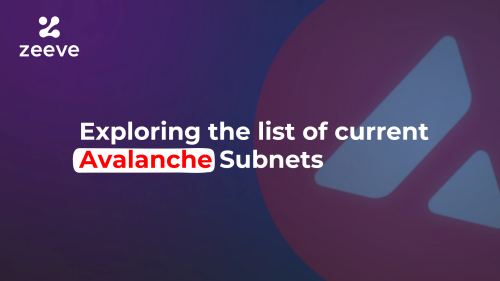
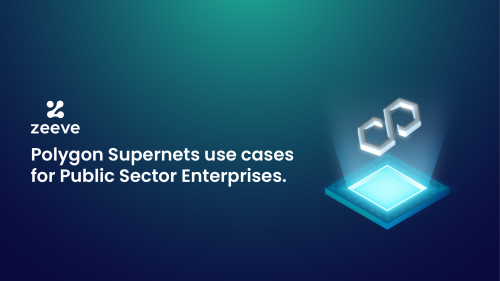
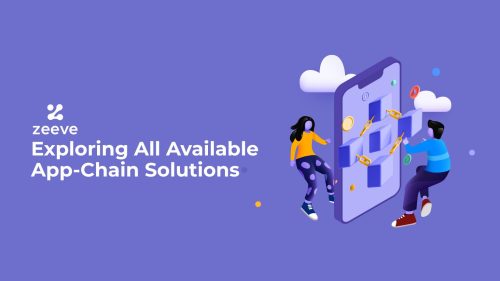
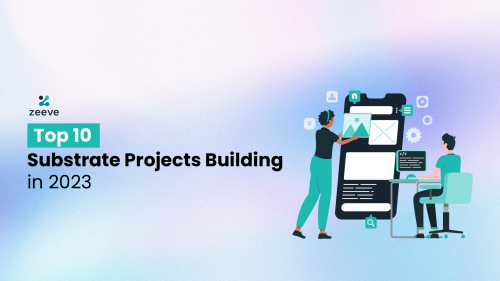
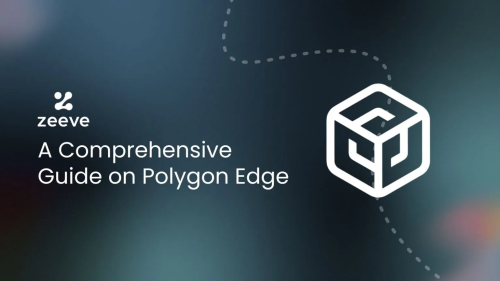
Responses